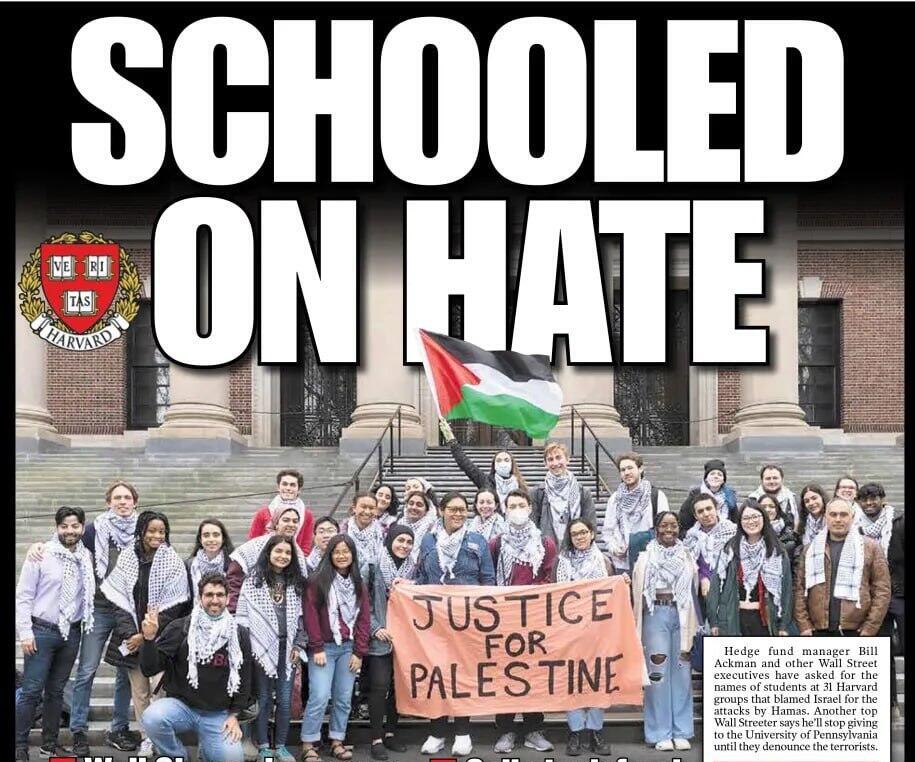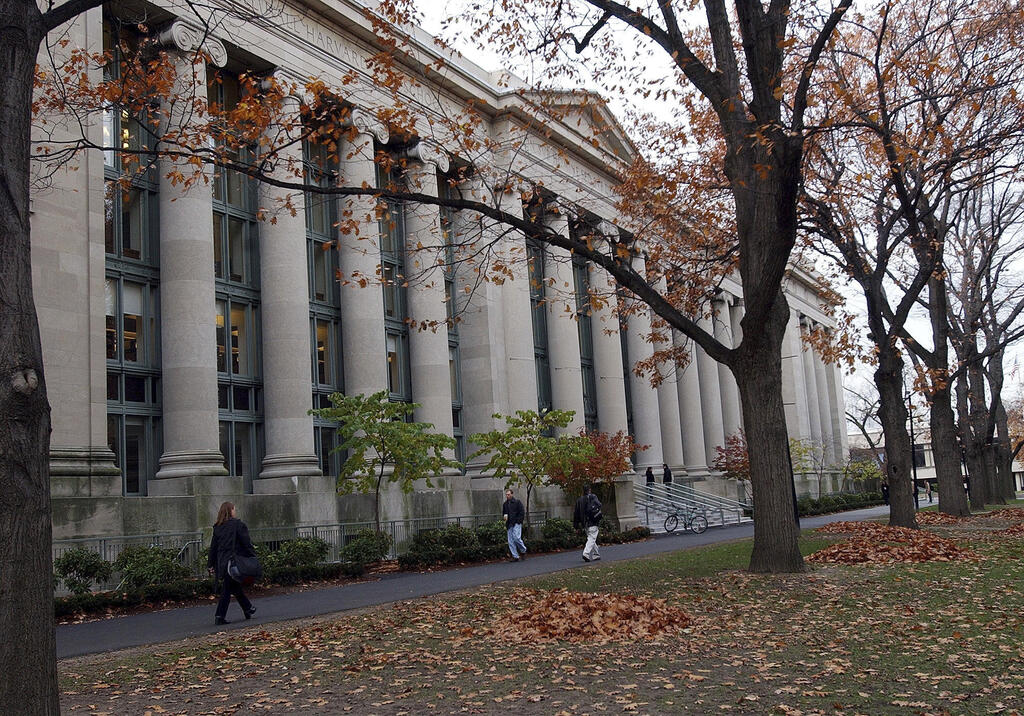"My goal is that each of you will receive a punch to the face during training," that's how the Golani's 12th Battalion combat instructor began our first training as recruits. "You will get smacked. I want you to experience that feeling so you can learn to shake it off and fight back." Most of the recruits, who had never been punched before, were fortunate to have experienced that. As soon as you enter combat, it’s better for you to be prepared rather than shocked. You’ll get punched, and hopefully hit back three times over.
More stories:
It's clear the Wexner Foundation has never taken a hit to the face before. On Monday, it announced it was discontinuing its support of Harvard University entirely, and in particular, the funding of the scholarship program it has operated for the past 34 years at the John F. Kennedy School of Government.
The decision came from a place of justified frustration at the university's weak and evasive response to Hamas’ massacre in Israel, and to the call of 34 pro-Palestinian organizations on campus, who blamed Israel for the atrocities.
From the onset of war, we’ve seen similar reactions from organizations that, like Harvard, proved there are worse things you can do than keep silent: not recognizing Hamas as a terrorist organization, not showing solidarity with the Israeli victims, blaming Israel, and attempting to form a sort of wicked symmetry between the two sides.
It's a waste of time trying to go against these morally bankrupt individuals. This article calls to look at the Wexner Foundation’s decision from an Israeli perspective. And from there, it’s a colossal mistake, for two reasons.
Firstly, Israel's representation on campus. the Wexner Foundation justifies its decision by saying that, due to the lack of support from the university administration, Israeli students (including scholarship recipients) feel abandoned. As an alumnus of the university (though not of the program), I can say with confidence, that no Israeli student ever felt abandoned, because no support was ever given. We never received any support.
The Harvard Kennedy School of Government is highly political and, as such, is not sympathetic to Israelis. The conflict permeates every class from ethics to statistics, and the prevailing opinion is turned against us. Israeli students at the school start this battle at a disadvantage. The fact that the walls of the school are adorned with the names of Jewish benefactors is meaningless. Money, even a substantial amount of it, doesn't persuade anyone there.
But money made sure someone would stand there and attempt to make their voice heard. The Wexner scholarships ensured an Israeli presence of about ten students at one of the most politically significant campuses in the world.
Their physical presence, integration into the campus’ social environment, relationships they built with future world leaders, and their authentic voice heard in classes, were genuine accomplishments in the arena of public diplomacy. With their absence, the vacuum will be filled rapidly. On campus, there are anti-Israel groups working solely to that end. Without Israeli students, it’ll be much easier to hold events, slander, and lie. If you’re not on the battlefield – you’ve lost.
Secondly, this isn’t just about the abandonment of the battle for public diplomacy, but also a significant loss for a program that has reared some of Israel's top public servants. The Harvard Kennedy School of Government is the best of its kind in the world. This is the primary reason that the Wexner Foundation operated there in the first place.
For 34 years, this program has nurtured IDF chiefs, Supreme Court justices, ministry directors-general, and more. They received a high-quality education, advanced working methods, and proven approaches to solving real issues affecting Israel.
More importantly, they build personal relationships with their professional peers, strengthening Israel in tangible ways. When a senior official in the U.S. Treasury Department knows their Israeli counterpart personally, cooperation becomes much easier. Such relationships are hard to establish solely in a professional environment. Developing them early, in an academic setting, is a true strategic asset.
A surface examination suggests that while the foundation's management may not have consulted with the program's alumni, many see its decision as correct, courageous, and ethical. They argue that Harvard, as an academic institution, lost its moral compass. They are absolutely right, but it's better to be smart than to be right.
We must look at what Israel has gained from the program and remember that a university is made up of an ever-changing assembly of individuals. Every year, the battle for Israel’s image reopens, and abandoning this arena only hurts us. While the foundation's management has stated it will find another academic institution to operate in, the same problem is prevalent in every institution in the U.S. This is the arena we need to address.
We must not abandon any battlefield. Instead, now especially, we need to ensure Israeli presence in these critical places. The withdrawal from Harvard isn’t just a significant strategic loss but precisely the outcome sought by anti-Israel instigators.
 Shahar Brukner
Shahar BruknerThey call for boycotting and turning away from Israel, and the foundation's decision aligns with their goals exactly. The foundation's management and its alumni need to shake off the blow they received and figure out how to hit back three times over.
- Shahar Brukner is the CEO of impala Impact Intelligence and an alumnus of the Harvard University John F. Kennedy School of Government’s MPP program.





